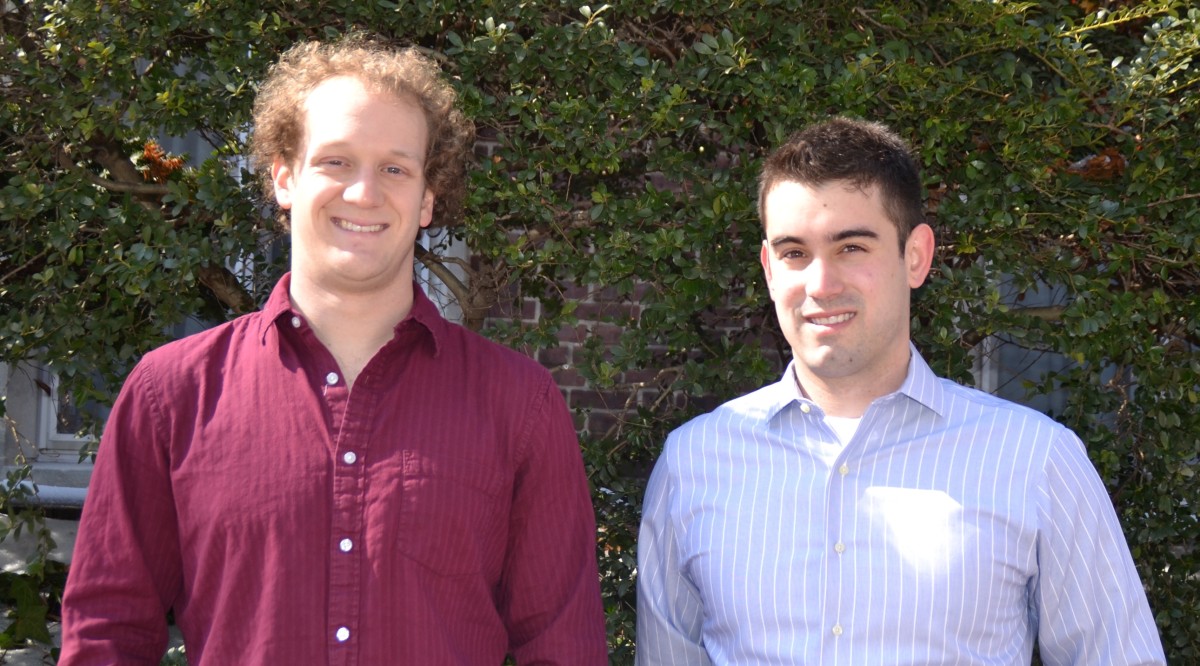Big companies, from Google, Facebook and Twitter, to fledgling startups everywhere, are all talking about the power of data. Data is being applied to so many different verticals to help make operations and sales more efficient and personalized.
It dawned upon University of Pennsylvania M.D./Ph.D. student David Lindsay that there wasn’t any database that radiation oncologists were using to help treat their patients better. With the idea stuck in his head, Lindsay called up his high school best friend, Christopher Berlind, a Ph.D. computer science student at Georgia Tech, and before they knew it, Oncora Medical was born.
Why shouldn't your doctor be using decades worth of data that is already sitting in a hospital to make sure that you get the best possible treatment?
Oncora Medical is data analytics startup, which integrates data about cancer patients and puts it in a usable format so doctors can use the data in treating future cancer patients.
Lindsay explains, “All sorts of industries are using data to drive decisions. Netflix uses data for consumer. Sport teams have been using a lot of data analytics to predict outcomes of games. Why shouldn’t your doctor be using decades worth of data that is already sitting in a hospital to make sure that you get the best possible treatment?”
The idea came from Lindsay shadowing a radiation oncologist. There he saw firsthand how hard the clinical workflow was. “Watching how these extremely intelligent doctors did not have access to data that could really help them,” he said, “pushed me to start looking into application software that could make the workflow of radiation oncology a lot better.”
Currently, in the radiation oncology process, there’s a team that takes the doctor’s blueprints and turns them into a full-fledged treatment plan. There’s a long line of communication between the technical team and the doctor before the process of the treatment plan begins. There are so many factors that have to be optimized in the process that having previous data on hand really makes a difference.
“The core function of Oncora right now is a tool that physicians can use to outline the objectives and restraints based on patient experience they’ve had in the past,” said Lindsay. “Right now, doctors have to rely on their own intuition, but with Oncora doctors can utilize past plans that different doctors have used.”
Lindsay’s original career goal was to actually become a neurosurgeon, but coming to Penn changed his trajectory. A course at Wharton on entrepreneurship in the medical device field exposed him to venture capitalists, entrepreneurs and industry leaders.
It was revelatory, Lindsay said.
“Normal human beings, if they had an idea and the willpower, could actually be entrepreneurs,” he said.
Given that Lindsay is finishing his studies at Penn right now, Oncora has access to more than 100 physicians, which he likes to call “built-in market research.” Oncora is also part of the Wharton Venture Initiation Program and has recently gotten funding from Dorm Room Fund. The company recently received $5,000 from the Wharton Innovation Fund. Oncora is hoping to announce its first pilot soon then pursue seed funding before formally launching the company.
Currently, Oncora’s founders are in discussion with cancer centers to pilot the technology, Lindsay said.
“Just going into the clinic and going and seeing how your customers actually work without your application. Identify the pain points. I really think especially in medicine,” he said. “More broadly, you’re in no position to build a product for a customer you don’t understand.”
Although Lindsay is still considering becoming a neurosurgeon in the long run, fighting cancer using data science is an opportunity he’s eager to pursue.
Before you go...
Please consider supporting Technical.ly to keep our independent journalism strong. Unlike most business-focused media outlets, we don’t have a paywall. Instead, we count on your personal and organizational support.
Join our growing Slack community
Join 5,000 tech professionals and entrepreneurs in our community Slack today!



